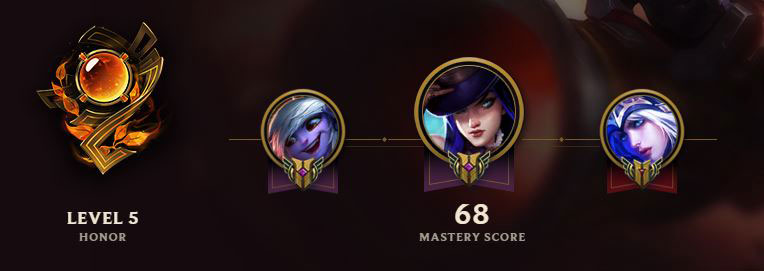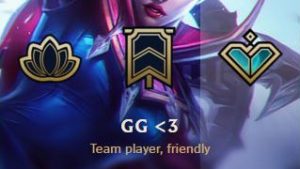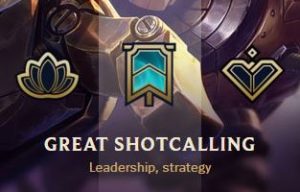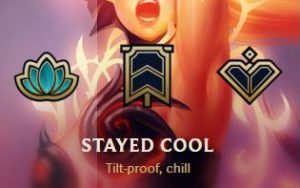The honor system in League of Legends, which was first introduced in 2012 and developed since, attempts to offer a solution to one of the most commonly discussed problems the game has ever faced. More than balancing champions, or the metrics used to measure a player’s individual performance, player cooperation and sportsmanship has weighed heavy on League’s otherwise successful existence.
While Riot isn’t going under due to a small percentage of players leaving the game for good due to toxicity and teammate saltiness, they nevertheless set out to improve the mindset of summoners in a way that was non-invasive, friendly, hands off and low risk. So, the question stands: does this method of player incentivization actually work and foster a more cooperative team environment?
Out With the Old Honor System and in With the New
The old honor system of League, which was phased out in June of 2017, had two major differences from the honor system we have in game today. For starters, we had friendly, helpful and teamwork as titles we could reward for our allies, with honorable opponent awarded for an opposing player whose performance was exceptional.
More importantly, the old honors system’s ultimate rewards were mostly cosmetic or a show of pride; you could review a player’s honors on their profile, and a crest would be added to their summoner image after champion select/during game loading. For receiving a specific combination of honors from your allies, you could be awarded the Great Mentor, Great Teammate, or Great Leader crests, and for receiving honors from opponents you would receive the Crest of Honor. There was even an All Around Honorable crest, which wasn’t frequently spotted.

Achieving these crests felt good. Each time you loaded up a new match, you would be reminded that your fellow players deemed your game-play, attitude and cooperation to be a positive influence. Ultimately, though, crests were like gold star stickers handed out by an elementary teacher desperately trying to keep a corral of rowdy children at bay. You got nothing other than the satisfaction of knowing something you probably already knew, especially if you went into each match with a positive attitude and a healthy competitive drive.
Honor has never been a terribly contentious mechanic in League of Legends. Complaints about the old honor system were mostly centered around players giving their friends repeated honors, rather than awarding it to random players. For example, those queuing with a friend all night and rewarding them honors after every game, which then had a diminishing return towards earning honor crests.
Honor, for the most part, was neither good or bad in the eyes of most players, but simply there as an aspect of the game no more noteworthy than the League client UI design. In seeking to remedy the honors system’s mundanity and refocus its essence towards preventing player tilting and frustration, the system was reworked to offer more tangible incentives.
You May Like
The New System — Incentivized
Honor orbs and capsules are now rewarded when a player reaches specific checkpoints in the honor system, which was remolded into three categories instead of four: stayed cool, great shotcalling, and GG and 3, with the latter meant as a catch-all for players who performed admirably in ways other than offering mechanical support or not caving under pressure.

Players receive key fragments, ward skins and champion shards (among other tier-specific items) for leveling under the honor system. These honor levels reset each season to give players another chance at level progression and achieving the rewards associated with each tier. Symbols that show off honor during the game’s loading period are now shorter. Now, they only last for one match after receiving an honor, as opposed to a consistent badge displayed next to the chosen champion.

There’s little in the way of hard evidence that suggests the new honor system is an improvement towards fostering player cooperation. However, the same addictive psychology that applies to game loot boxes applies to the honor’s rewarded capsules. The capsules entice players with seemingly unpredictable rewards in a way that is psychologically more captivating than receiving non-randomized, standard reward — producing anticipation towards rewards that mirrors gambling.
Players may still feel a sense of pride for being honored by their fellow teammates, however, Riot’s decision to heighten that feeling with a more common, basal drive to collect loot changes how players feel and interact with the honor system.

Few games have any dedicated method to reward players for exemplary behavior, with many opting to gift in-game content to players they feel made their day. Before the new honor system was implemented (and still existing to some extent) a common gesture to congratulate a particularly skilled or friendly teammate would be to gift a skin of their favorite champion. Gaming communities have long since taken it upon themselves as players to reward behavior among one another and to foster a community where unnecessary aggression upon defeat is minimized.
Now that there is loot on the line, do players feel differently about the honor system? There are very few cries of the new system being unfair or easily gamed to give free loot to players who don’t deserve it.
However, one aspect of the old honor system that may never have necessarily encouraged good behavior, but nevertheless made players feel recognized for their skill, has been sorely missed. Honorable Opponent, though it may not have fit into a model of incentivizing cooperation, made players feel both accomplished in receiving and generous in giving.
















